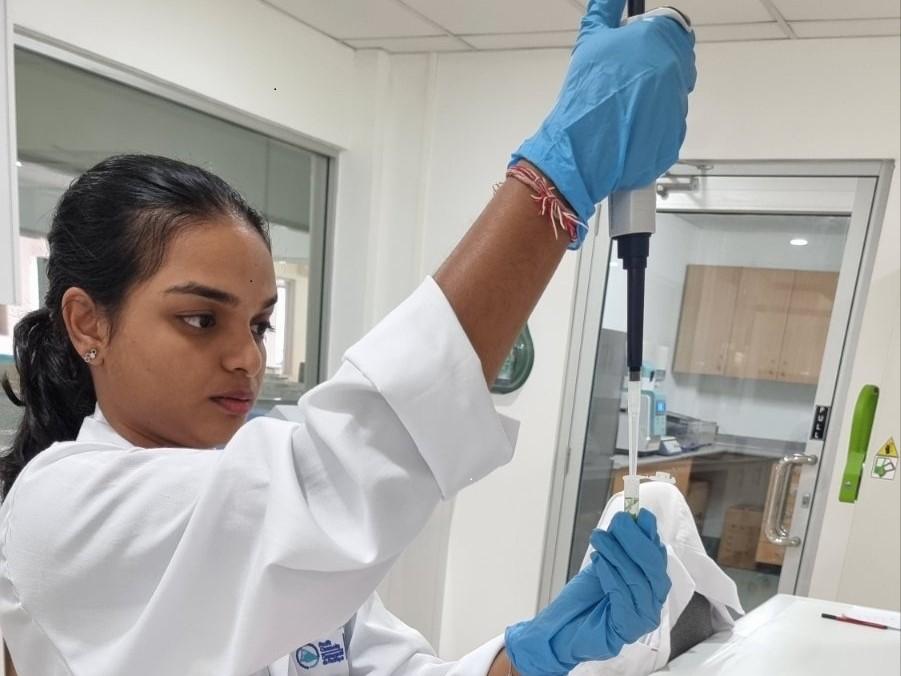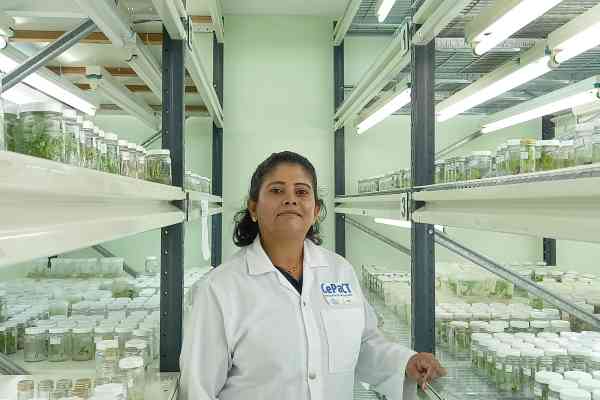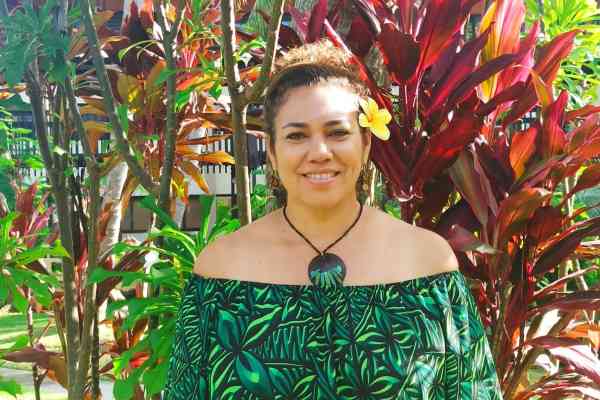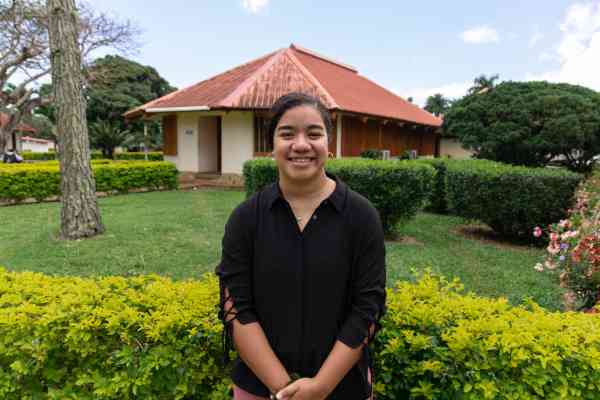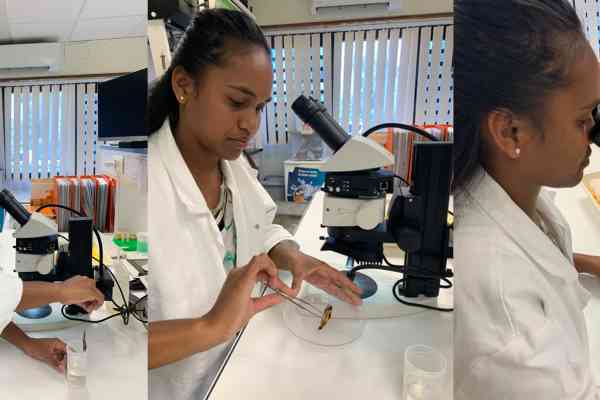(contenu disponible en anglais uniquement)
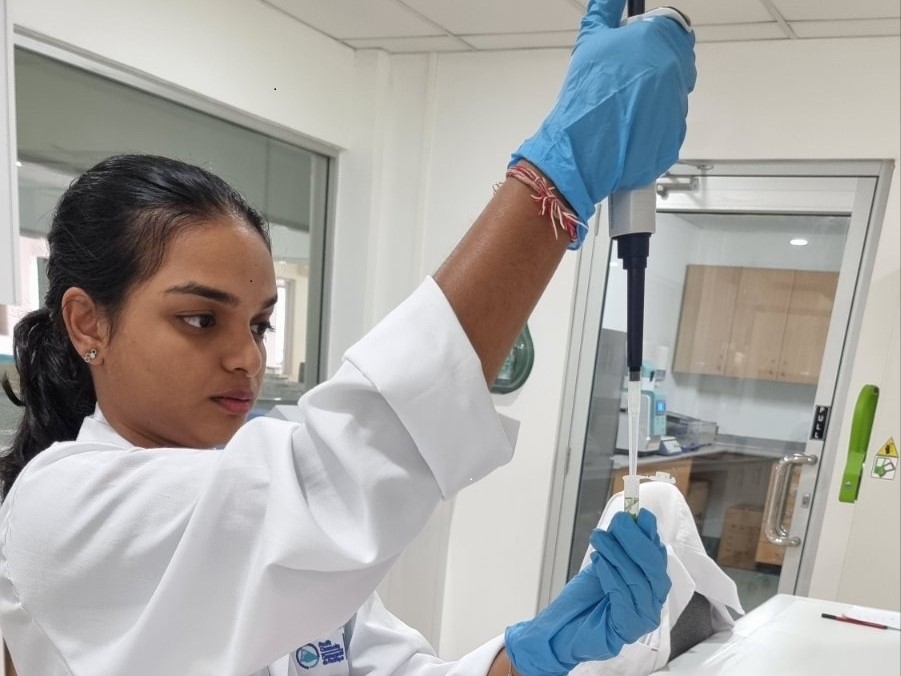
The Pacific Community’s (SPC) Land Resources Division (LRD) is promoting a series of features and interviews that highlight its leading-edge science-based research to promote a sustainable and resilient future for all Pacific people. Today, we talk with CePaCT intern Priyaashna Kumar. Priyaashna has a BSC in Biology and Chemistry and a keen interest in microbiology and plant viruses.
1. Could you briefly describe your academic or professional background and how it has led you to pursue this research opportunity?
I have always been on the research side. I have completed my BSc, double majoring in Biology and Chemistry. During my undergraduate days, I was always interested in finding new knowledge and skills along the way and conducting major research-based assignments was what I loved. Therefore, I pursued a Postgrad Diploma in Biology, in which I conducted one major research and another research in the field of microbiology that was supposed to be completed; however, Covid happened. During the lockdown, I completed two research-based units, which kept me on my toes to conduct a lot of literature searches, which was when I received the ACIAR scholarship. I selected a few project topics and conducted a lot of research on those that led me to apply to the College of Agriculture, Fisheries and Forestry at Fiji National University.
2. Can you tell me about your research project? What inspired you to pursue it, and what are your main objectives or goals?
My project is based on studying sweet potato viruses in Fiji. The project is linked with CePaCT (Centre for Pacific Crops and Trees), as Dr Sukal (CePaCT Associate Scientist) is part of the Germplasm Health Unit of SPC and the only plant virologist in Fiji. As his external student, I requested if I could work in his laboratory under his supervision. When I got to know that CePaCT had the only genebank and germplasm health unit in Fiji, I was more inspired to work with the division. My goal in joining SPC was to learn as much as possible from Dr Sukal and his team. I have been tremendously supported by the team for any new activity I conducted or when I was unsure about anything, from DNA extraction to running gel electrophoresis after polymerase chain reaction against specific primers. The goal of my project is to characterise the sweet potato viruses present in Fiji and their associated weed hosts.
3. What specific challenges or obstacles have you faced during your research, and how have you overcome them?
The major challenge was to start the project as I did the methodology in theory; however, I did not have any practical knowledge. The GHU team, together with Dr. Sukal, helped me at every step of my research journey. The staff and Dr Sukal provided advice, tips, and tricks on modifying the protocols and ways to obtain good research data.
4. How has your SPC internship programme influenced your research? Are there any unique resources or opportunities you have been able to access?
The SPC internship programme, together with ACIAR work placement, has been beneficial in terms of career development. I have been interacting with many technicians and scientists from my field of study through SPC while attending workshops and seminars along with conducting my research. I have been able to be part of training with the Germplasm health unit staff, which enabled me to learn about various molecular software and its application in my research. The laboratory is equipped with advanced instruments that complete work in a few minutes or hours, whereas traditional laboratories in the Pacific could take a day or two. Access to the laboratory and the post-entry quarantine facility enabled me to conduct field sampling only once. The samples were preserved in the laboratory, and live samples were grown in a greenhouse. Proper preservation and access to live plants have made it easier to obtain samples for testing. A bonus about the placement in CePaCT is the availability of a library that helped me access various papers and work done in the Pacific.
5. In what ways has your research/internship enhanced your personal and professional development?
The research internship has helped me grow in terms of my personal and professional paths, and I have been able to obtain a clearer version of my career while working with CePaCT. The presence of scientists and mentors at SPC helped me see a whole new perspective on how things can be done in a concise systematic manner in terms of work or even for personal tasks. Every day was like a new lesson for me. I came across various ideas and ways to do things, either in the field or in the lab.
6. Are there any specific skills or knowledge areas that you have gained or improved upon?
Through this internship, my molecular applications have been greatly improved. During my university journey, there were a few practical examples with regard to DNA extraction and PCR; however, there was not much hands-on training. I learned from Ground Zero about the molecular diagnosis from Dr Amit. Despite the fact that there is a lot to learn, my skills in DNA extraction, quantification of total nucleic acid extraction, running gel electrophoresis, and PCR preparation have improved drastically.
7. Could you shed some light on the organisations or institutions that have played a part in supporting your journey?
The ACIAR-PASS-CR programme, Fiji National University, College of Agriculture, Fisheries and Forestry, and the Ministry of Agriculture have been a huge support for my research. The funding for all my experiments was catered to by ACIAR and FNU. The University of Sunshine Coast has always provided extra support in terms of conducting workshops for software, writing, and media training. The Ministry of Agriculture has been helping provide contact with sweet potato farms.
8. Finally, is there anything else you would like to add or any advice you would give to other students or aspiring researchers or interns who may be interested in similar areas of study?
The Pacific is a growing entity, and the agricultural sector needs more youth to be part of problem-solving. An increase in the number of researchers in the agricultural field, climate change, and marine science will help combat various issues in the Pacific. The number of females out there needs to increase in STEM fields to help tackle issues not only at the country level but also to increase education for families and the community. Be the change you want to see in the world” is what I would tell the youths out there, nothing can stop one from achieving their goals.
